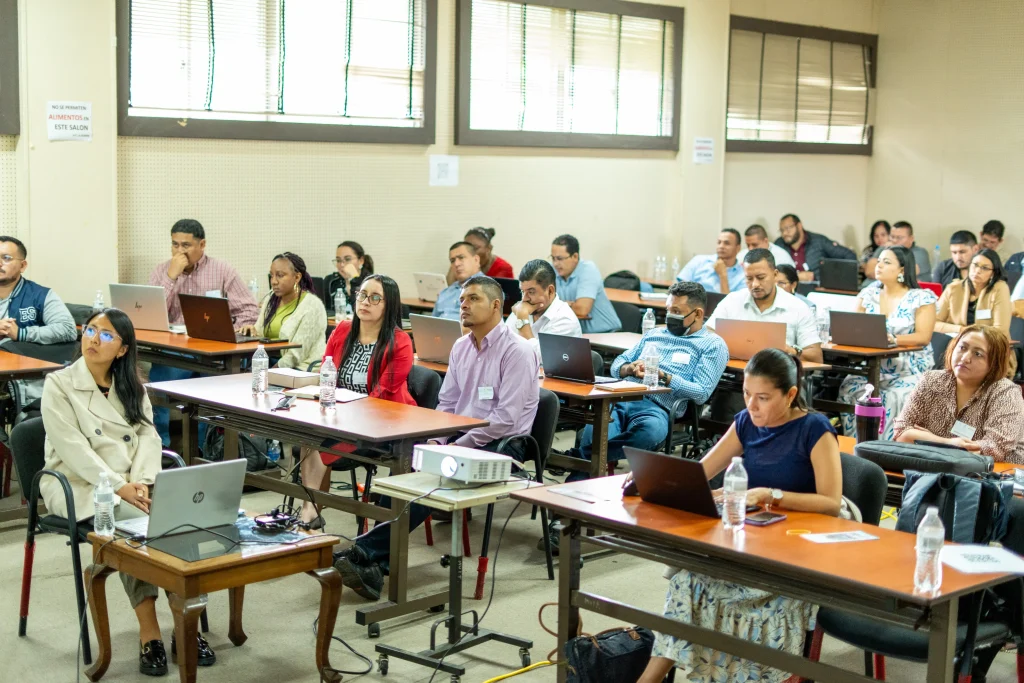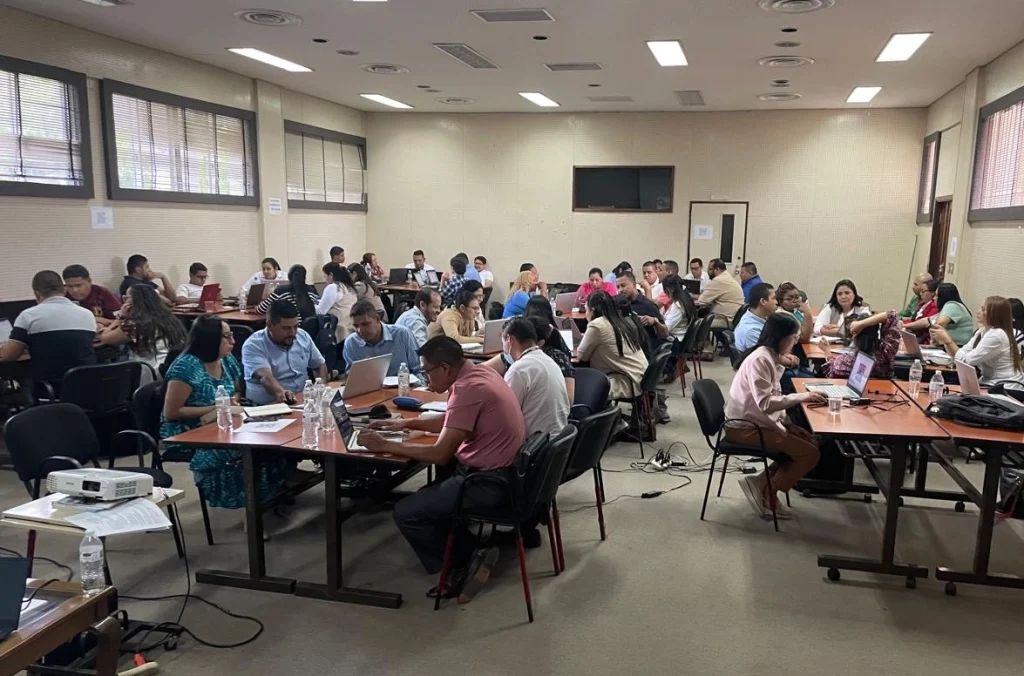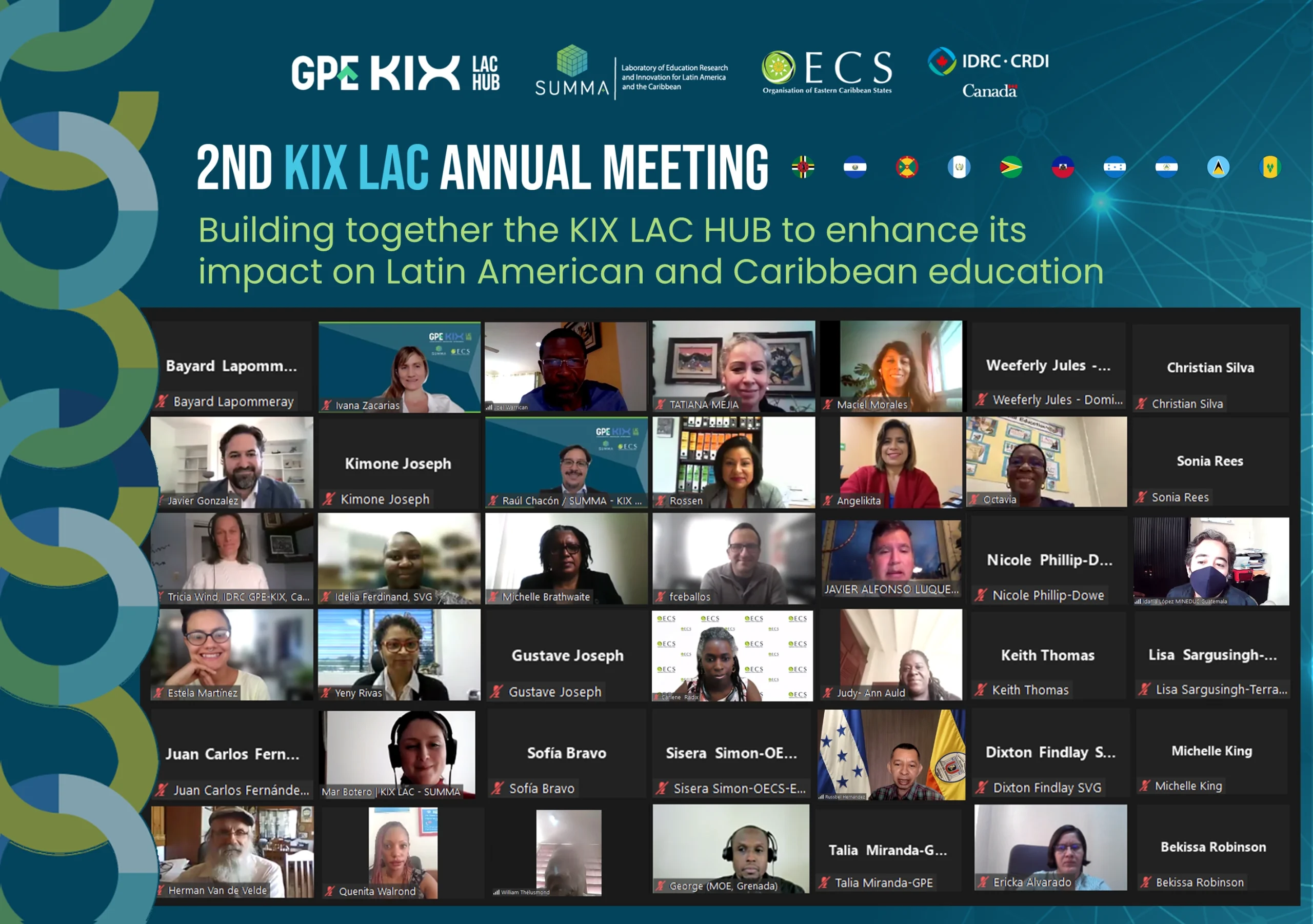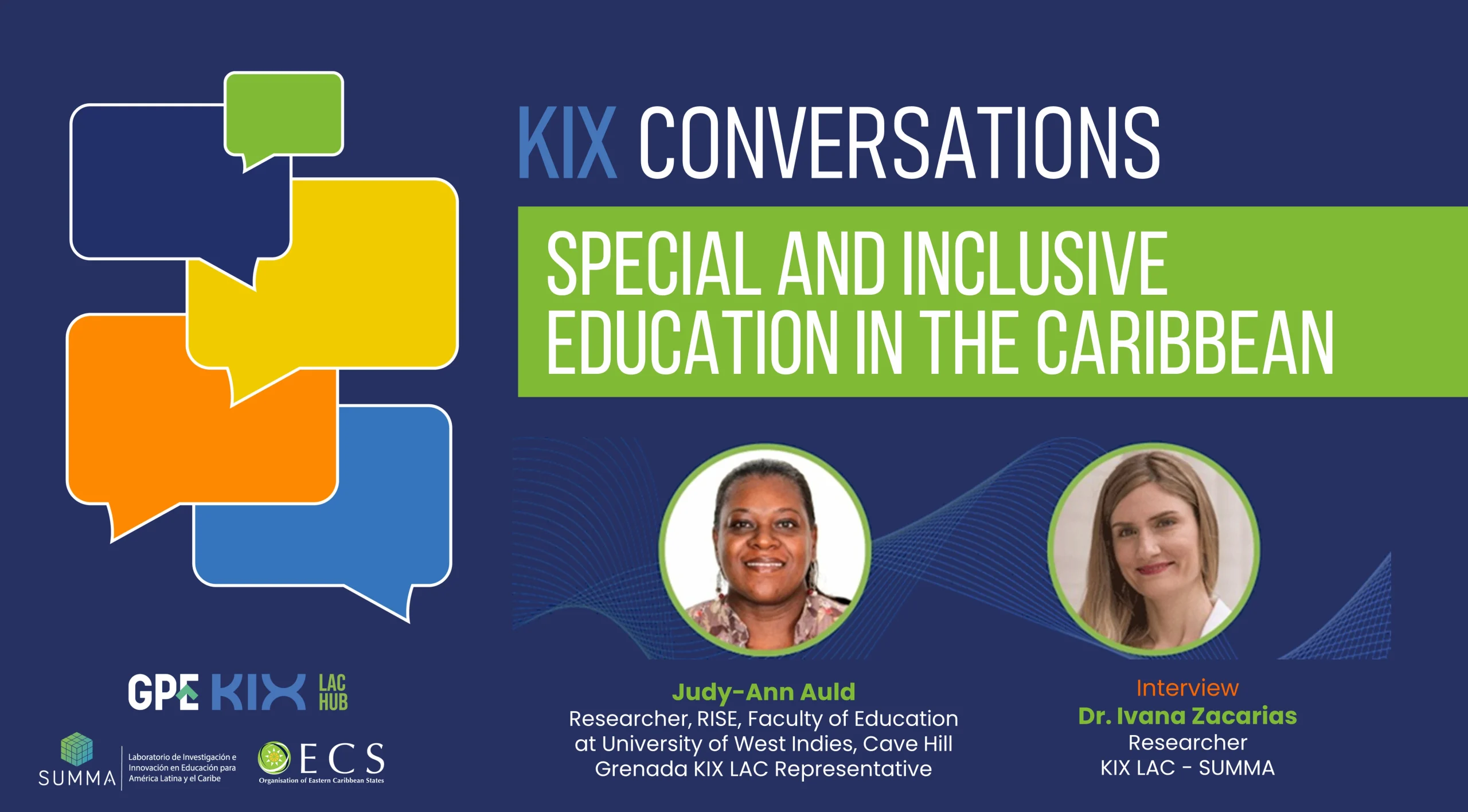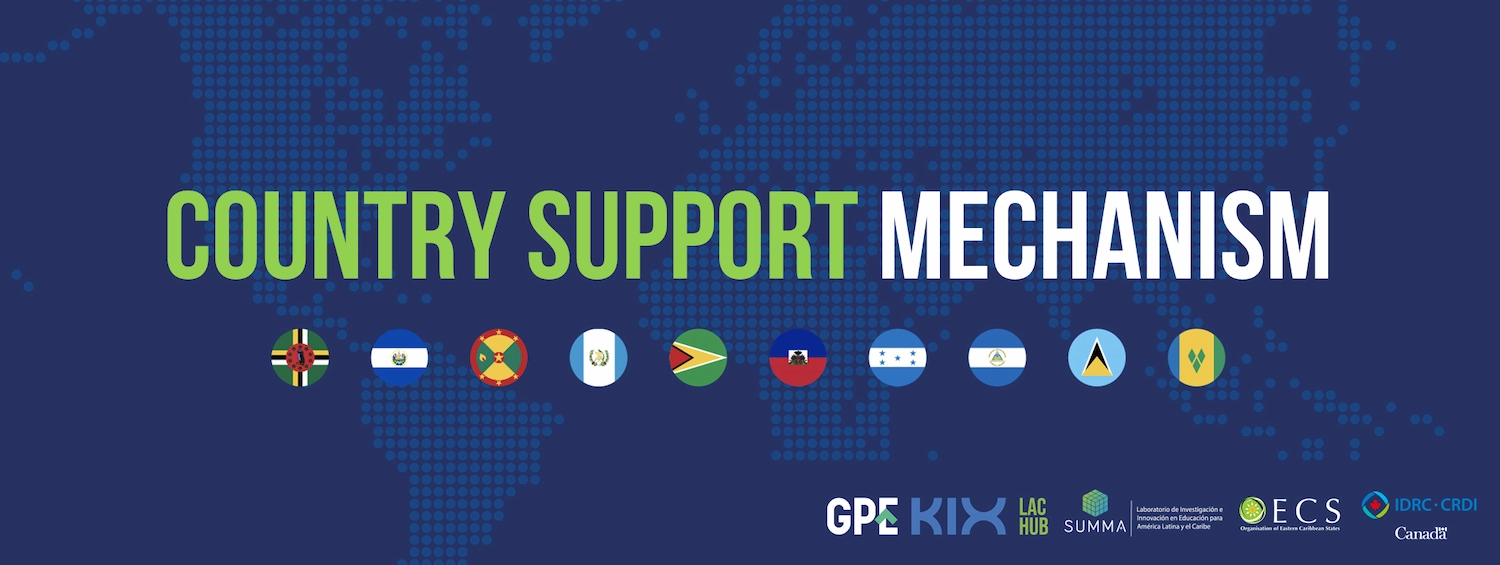In-person meeting in Tegucigalpa marks a new milestone in the International Diploma in Educational Research Methodologies led by KIX LAC and the Ministry of Education of Honduras
25 de August de 2025
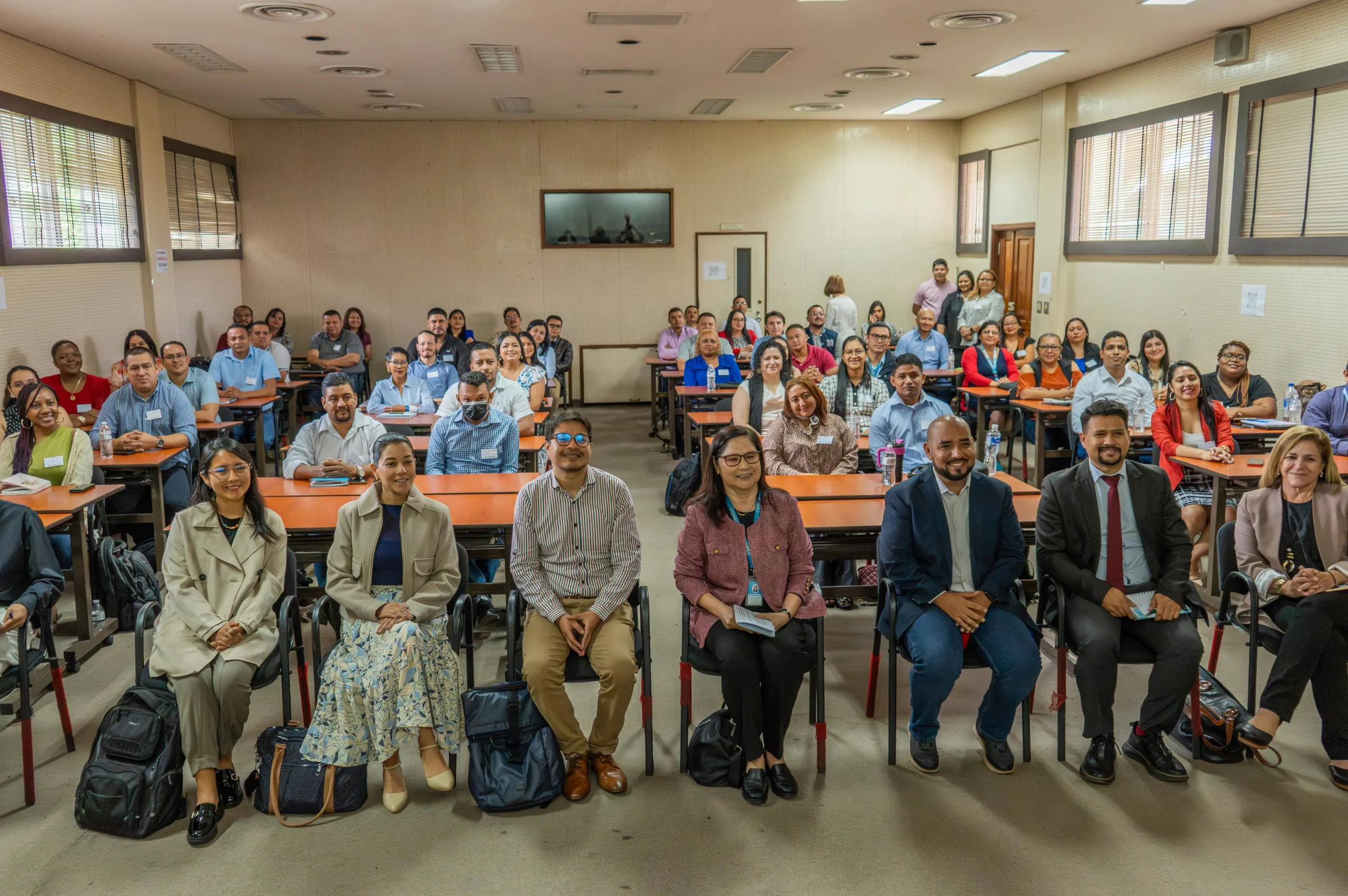
Share
As part of a joint effort between KIX LAC and the Ministry of Education of Honduras, a diploma program is being implemented to strengthen the educational system’s research capacities and promote the use of evidence in decision-making.
From August 5 to 7, 2025, the first in-person session of the International Diploma in Educational Research Methodologies took place in Tegucigalpa, Honduras. This initiative is led by the Ministry of Education of Honduras (SEDUC) and the KIX LAC Hub—the Knowledge and Innovation Exchange (KIX) for Latin America and the Caribbean, an initiative of the Global Partnership for Education (GPE) and Canada’s International Development Research Centre (IDRC), led in the region by SUMMA and the Organization of Eastern Caribbean States (OECS)—with academic support from the Group for the Analysis of Development (GRADE), Peru.

Representing SEDUC Honduras were Daniel Sponda, Secretary of Education; Ilich Valladares, Acting Deputy Minister for Technical-Pedagogical Affairs; Juan Vicente Rodríguez, Director General of Professional Development; and Esthefani Cerrato, Deputy Director of the General Directorate for Educational Research. Also present were Suyapa Padilla, Coordinator for Teacher Training at the National Education Council (CONED), and Rosa María Moncada, Country Support Officer for KIX LAC.

During the opening session, Secretary Sponda welcomed the participants and stated: “One of the pillars of the 365 Plan is that students can understand what they read. We must study the associated factors and context in order to make the right decisions, and education policy must be built from the classroom.” Deputy Minister Valladares added: “The participants in this diploma are the first group of teachers working on research projects and are part of the formation of departmental research teams.”
Over the course of two days, teachers and research coordinators from all 18 departments of the country deepened their knowledge of quantitative and qualitative data analysis, advanced their research projects, and shared experiences with tutors, education authorities, and representatives of the organizing institutions.
The event opened with an expert discussion panel featuring Suyapa Padilla (CONED), Ilich Valladares (SEDUC), and Juan Carlo Rivero (GRADE). The program included lectures, collaborative work sessions, and in-person tutoring. It also served to reinforce SEDUC’s institutional commitment to training and knowledge generation from the territories, connecting research with the real needs of local education communities.
This process is also linked to the development of the future National Policy on Educational Research and represents a strong commitment to building a sustained research culture, with a territorial and education justice focus.
This in-person session is part of a broader training initiative aimed at strengthening research capacities within the Honduran education system, with the goal of generating contextualized evidence to improve education policies and practices. The diploma marks a milestone in the ongoing collaboration between KIX LAC and the Ministry of Education of Honduras since 2023, under the Country Support Mechanism.
Voices from the in-person meeting
“This diploma greatly supports articulation initiatives and the public policy development processes led by CONED.” — Suyapa Padilla (CONED)
“The diploma marks an important milestone that connects research with teacher training. Since the beginning of our administration, we have made decisions based on what the evidence shows us.” — Juan Vicente Rodríguez (DGDP)
“We are proud to have achieved an important goal—organizing and strengthening the departmental research teams, who have gathered here in Tegucigalpa from all 18 departments of Honduras.” — Esthefani Cerrato (SEDUC)
“We can see the Ministry of Education’s receptiveness, and the commitment at all levels is clear: authorities, intermediate levels, and most importantly, schools—because today we have classroom teachers actively participating in research processes.” — Rosa María Moncada (KIX LAC)


